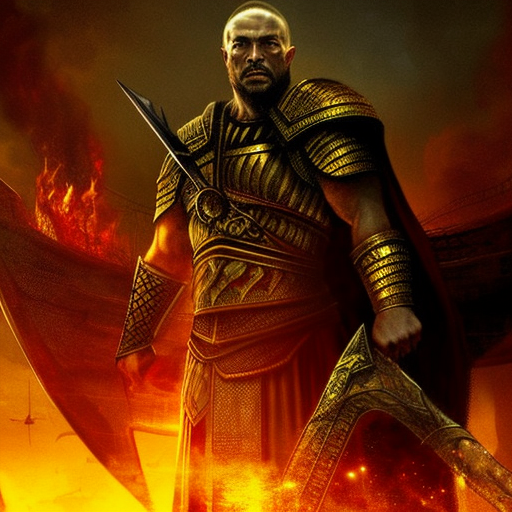One-line summary: Beowulf is an epic poem that tells the story of a heroic warrior who battles monsters and dragons to protect his people.
The Heroic Tale of Beowulf
Beowulf is an ancient epic poem that dates back to the 8th century and is considered one of the most important works of Old English literature. The story takes place in Scandinavia and follows the adventures of Beowulf, a mighty warrior from the Geats, as he battles various supernatural creatures to protect his people.
Beowulf’s Epic Battles
The poem begins with Beowulf arriving in Denmark to help King Hrothgar, whose kingdom is being terrorized by a monster named Grendel. Beowulf bravely confronts Grendel and defeats him in a fierce battle, ripping off the monster’s arm. However, Grendel’s mother seeks revenge and attacks the kingdom. Beowulf tracks her down to her underwater lair and kills her with a magical sword.
Years later, Beowulf becomes the king of the Geats and faces his final and most challenging battle. A dragon awakens and starts wreaking havoc on his kingdom after a thief steals a valuable treasure from its lair. Beowulf, now an old man, decides to confront the dragon and protect his people. In a fierce battle, Beowulf manages to kill the dragon but is mortally wounded in the process.
Themes of Heroism and Fate
Beowulf explores several themes, including heroism, fate, and the importance of reputation. The poem portrays Beowulf as the epitome of heroism, showcasing his strength, bravery, and selflessness in the face of danger. Beowulf’s heroic deeds not only protect his people but also earn him fame and glory.
The concept of fate is also prevalent throughout the poem. Beowulf believes that his life is predetermined and that he will die when his time comes. This fatalistic worldview is reflected in his willingness to face dangerous creatures without fear, knowing that his actions are ultimately guided by destiny.
Additionally, the poem emphasizes the significance of reputation in the warrior culture of the time. Beowulf’s reputation as a mighty warrior precedes him, and he is celebrated for his heroic deeds. The poem highlights the importance of maintaining one’s reputation and the honor that comes with it.
Key Takeaways:
- Beowulf is an epic poem that tells the story of a heroic warrior who battles monsters and dragons to protect his people.
- The poem explores themes of heroism, fate, and the importance of reputation.
- Beowulf’s epic battles against Grendel, Grendel’s mother, and the dragon showcase his strength, bravery, and selflessness.
- The poem reflects the warrior culture of the time and the belief in fate.
- Beowulf’s actions earn him fame and glory, highlighting the significance of reputation.
“Fate often saves an undoomed man when his courage is good.”
– Beowulf
In conclusion, Beowulf is a timeless epic poem that celebrates the heroic deeds of its protagonist. The tale of Beowulf’s battles against supernatural creatures highlights the themes of heroism, fate, and the importance of reputation. This ancient masterpiece continues to captivate readers with its vivid imagery and exploration of the human spirit.












